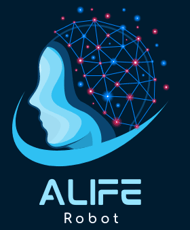The Future of Artificial Intelligence: Exploring its Applications and Advancements
3/5/20242 min read


Artificial Intelligence (AI) has revolutionized the world in numerous ways, making significant advancements in various fields. From healthcare to finance, AI has become an integral part of our lives, transforming the way we live and work. In this blog post, we will delve into the future of AI, exploring its applications and the exciting advancements that lie ahead.
Applications of AI
AI has found its way into almost every industry, enhancing efficiency and productivity. One of the most prominent applications of AI is in healthcare. AI-powered systems can analyze vast amounts of medical data, assisting doctors in diagnosing diseases and predicting patient outcomes. This technology has the potential to revolutionize patient care by providing personalized treatment plans and improving overall healthcare outcomes.
Another area where AI has made significant strides is in finance. AI algorithms can analyze market trends, predict stock prices, and identify investment opportunities. This technology has the potential to revolutionize the financial industry, making trading more efficient and accurate.
AI has also found its way into transportation, with the development of self-driving cars. These vehicles use AI algorithms to navigate roads, analyze traffic patterns, and make real-time decisions. The future of transportation looks promising, with the potential to reduce accidents and congestion, and increase overall efficiency.
Advancements in AI
The field of AI is constantly evolving, with researchers and developers pushing the boundaries of what is possible. One exciting advancement is in the area of natural language processing (NLP). NLP algorithms enable computers to understand and interpret human language, making it possible for chatbots and virtual assistants to communicate with users in a more natural and intuitive way.
Another area of advancement is in computer vision, where AI algorithms can analyze and interpret visual data. This technology has numerous applications, from facial recognition to object detection. With further advancements, we can expect to see AI-powered systems that can accurately analyze complex visual data, opening up new possibilities in fields such as robotics and surveillance.
Furthermore, AI is making strides in the field of robotics. Robots powered by AI algorithms can perform complex tasks with precision and efficiency. From manufacturing to healthcare, robots have the potential to revolutionize industries by automating repetitive tasks and working alongside humans in a collaborative manner.
The Future of AI
The future of AI looks promising, with endless possibilities for innovation and advancement. As technology continues to evolve, we can expect AI to become more integrated into our daily lives. From smart homes to personalized healthcare, AI has the potential to enhance our quality of life in ways we can only imagine.
However, with these advancements come ethical considerations. As AI becomes more powerful, ensuring its responsible and ethical use becomes crucial. It is essential to prioritize transparency, accountability, and fairness to prevent any potential misuse or bias in AI systems.
In conclusion, the future of AI is bright, with its applications spanning across various industries. From healthcare to finance, AI has the potential to revolutionize the way we live and work. With ongoing advancements and responsible implementation, AI has the power to create a super attractive world, enhancing our lives in ways we never thought possible.
